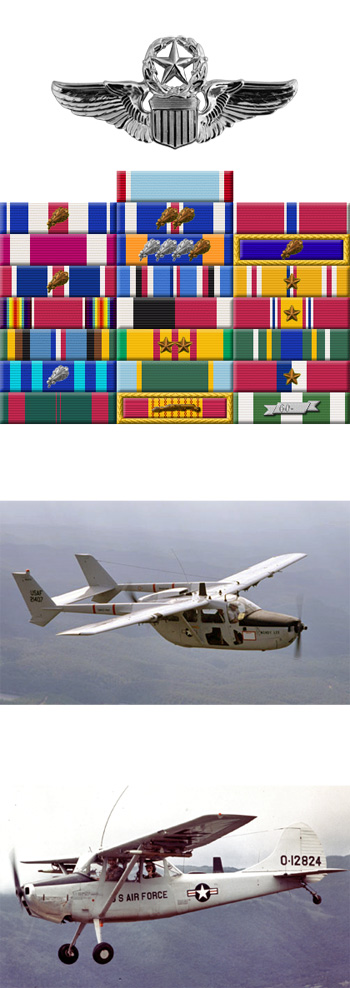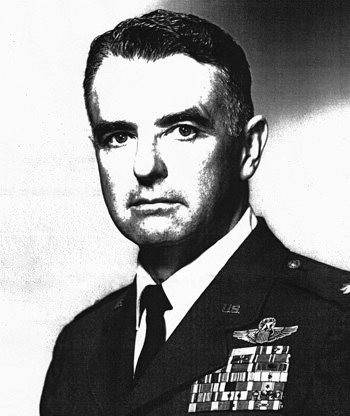
|
Joseph B. Madden |
 |
|||
| Rank, Service | ||||
Lieutenant Colonel O-5, U.S. Air Force |
||||
| Veteran of: | ||||
|
||||
| Tribute: | ||||
Joseph Madden was born on September 5, 1925, in Butler, Pennsylvania. He enlisted in the U.S. Naval Reserve on May 25, 1943, and went on active duty beginning July 1, 1943. After completing radio school, electronics and radio technician training, radio and radar sonar training, and submarine radar maintenance training, Madden served in the Pacific Theater from January to September 1945, and then in Europe from January to April 1946. He received an honorable discharge from the U.S. Navy on April 18, 1946, and then completed his bachelor's degree at the University of California before entering Officer Candidate School with the U.S. Air Force on December 28, 1949. Madden was commissioned a 2d Lt in the Air Force on June 23, 1950, and then served as a Weather Officer in England from November 1950 to August 1952. Lt Madden then entered pilot training and was awarded his pilot wings at Bainbridge AFB, Georgia, in August 1953, followed by Combat Crew training and Instructor Pilot training from October 1953 to April 1954. His first assignment was as an instructor pilot with the 3552nd and 3550th Combat Crew Training Squadron at Moody AFB, Georgia, from April 1954 to September 1957, followed by service as a Weather Officer wit the 8th Weather Group at Greenville AFB, Mississippi, from September 1957 to September 1958. Capt Madden next served as a Weather Officer and Duty Forecaster with the 30th Weather Squadron and the 10th Weather Group at Osan AB, South Korea, from September 1958 to October 1959. He completed B-47 Stratojet Combat Crew Training in July 1960 and Advanced Survival Training in August 1960. His next assignment was as a B-47 Aircraft Commander with the 49th Bomb Squadron at Hunter AFB, Georgia, from September 1960 to January 1962, and then as a Duty Controller with the 2nd Bomb Wing at Hunter from January 1962 to April 1963. Maj Madden served as a Controller and then Operations Officer with the 380th Bomb Wing (later redesignated the 380th Strategic Aerospace Wing) from April 1963 to November 1965, followed by service as a C-124 Globemaster II pilot with the 17th Military Airlift Squadron at Charleston AFB, South Carolina, from November 1965 to September 1966. He next completed Combat Crew Training as an O-1 Bird Dog Forward Air Controller in January 1967, before deploying to Southeast Asia in March 1967, where he served as a Tactical Liaison Officer for the 4th Infantry Division while assigned to the 21st Tactical Air Support Squadron at Nha Trang AB and Plieku AB, South Vietnam, from April 1967 to March 1968. During this time he flew 358 combat missions in O-1 Bird Dog and O-2 Milirole aircraft. Col Madden next served as an instructor pilot with the Forward Air Controller section of the 4410th Combat Crew Training Squadron at Hurlburt Field, Florida, from April 1968 to June 1969, followed by service as commander of the 4409th Combat Crew Training Squadron (later redesignated the 549th Tactical Air Support Training Squadron) at Hurlburt from June 1969 to May 1972. His final assignment was on the staff of U.S. Air Force Special Operations Forces at Eglin AFB, Florida, from June 1972 until his retirement from the Air Force on June 22, 1973. Joe Madden died on July 31, 1983, and was buried at the Beal Memorial Cemetery in Fort Walton Beach, Florida. |
||||
|
||||

